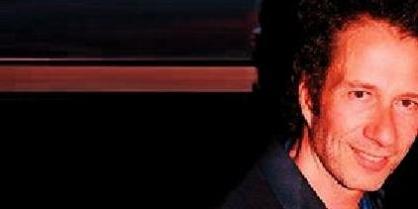
Stuart Matthewman is a famous songwriter, multi-instrumental musician, arranger, producer, a member of the bands Sade and Sweetback. He also records under the pseudonym Cottonbelly. Stuart was born on 18 August 1960 in Hull, North Yorkshire, England, in musicians family. His first instrument was clarinet, then he picked up sax as a teen, and began playing guitar in 1976. He studied music in Hull Univercity and played in a band The Odds. His influences included Jr. Walker, King Curtis, Art Pepper, Gato Barbieri, Ernie Isley, Johnny "Guitar" Watson, Wah Wah Watson, Issac Hayes, Bill Withers, Lee Perry, and Gustav Mahler. In 1980 Stuart moved to London, where he toured with a singer Raving Rupert, Elvis Presley impersonator. In 1982 Stuart joined a Latin-soul group Pride, where he met Sade Adu and Paul Cook, and met his old friend Paul Spencer Denman. Ariva became Pride. Some months later Sade Adu, Stuart Matthewman, Paul Cook and Paul Spencer Denman formed splinter group named Sade and began to write their own material. Later they joined by Andrew Hale, but Paul Cook left the band. In 1984 together with the rest of the band Stuart signed with Epic Records. All posterior Sade albums Ś Diamond Life (1984), Promise (1985), Stronger Than Pride (1988), Love Deluxe (1992), The Best Of (1994), Lovers Rock (2000), Lovers Live (2002) Ś were released through this label. In 1994 Stuart began to study lama kung fu (a Tibetan, Chinese style) at the New York Kung Fu Academy. Studies included contact sparring, traditional forms, weapons, chi gong, and meditation. In 1995 Stuart met neo-soul singer Maxwell. He co-produced and co-wrote, and played sax and guitar on Maxwell's albums Ś Maxwell's Urban Hang Suite (Columbia, 1996), Embrya (Columbia, 1998), Now (Columbia, 2001). In 1996 Sade members Stuart Matthewman, Andrew Hale and Paul Spencer Denman formed group named Sweetback. As a band they released two albums Ś Sweetback (Epic, 1996), an attractive mixe of ambient dub, trip-hop, retro-soul, and acid jazz, and Stage [2] (Epic, 2004), a laid-back album of retro-soul, contemporary R&B, melodic pop, and mildly experimental electronica. Guest vocalists were Aya, Chocolate Genius, Amel Larieux, Bahamadia, Leroy Osborne and Maxwell. In 1998 Stuart met singer/songwriter Olu. Together they produced Olu's debut album Soul Catcher (V2, 1999). In 1999 Stuart met singer/songwriter Santessa. Thay recorded her album Delirium (Sony International, 2001). When Stuart isnÆt producing and writing with other artists he releases his own dub/electronic influenced productions and remixes under the name Cottonbelly. He recorded remixes for Edge Records, React Records, Quango Records, and worked for various artists including Janet Jackson, Gregory Isaacs, Esthero and The Isley Brothers. In 1997 Cottonbelly's full length compilation X Amounts Of Niceness was released on his own lable Cottonbelly Records with a limited edition of only 500. In 2004 edited album NYC Sessions 1993-2004: X Amounts Of Niceness was released on Wrong Records. Stuart's other musical passion is composing of film music. In 1993 he met film makers Mark and Michael Polish (Polish Brothers). He composed soundtracks for all their movies Ś Bajo Del Perro (1994), Twin Falls Idaho (Sony Pictures Classics, 1999), Jackpot (Sony Pictures Classics, 2001), Northfork (Paramount Classics, 2003) and Astronaut Farmer (Warner Brothers, 2006). He released OST Twin Falls Idaho (What Are Records?, 2000) recorded with the New York Philharmonic, OST Jackpot (Milan Records, 2001) and Northfork Film Score (Cottonbelly Productions, 2003). Stuart also composed soundtracks for Nelson George movies Ś To Be a Black Man (1994), Life Support (2007). As a consummate musician, switching freely between brass, guitars and programming, Stuart Matthewman is the restless one. Long sabbaticals between Sade albums proved difficult for a man who is only at his happiest when playing. Moreover he yearned to compose film music since being at college in Hull in the 70s. He also always had a love of dub music, instrumental reggae, from the underground, and experiments heself. And still Stuart is a vital part of Sade band. At once after forming of the band he stamped his authority with a saxophone sound that becÓme the hallmark of the Sade sound in the early days. |
|
Instruments Played
Sax/Guitars/Keyboards/MIDI Programming |
www.loversrock.narod.ru